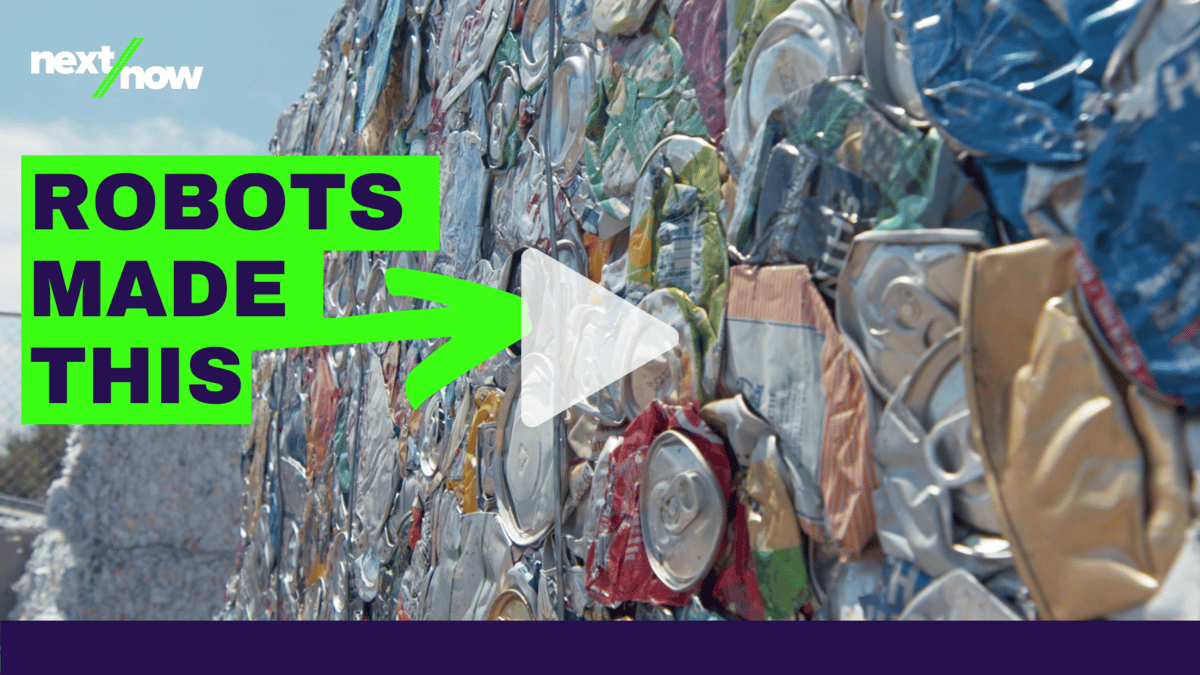- Pique Behind the Curtain from Pique Action
- Posts
- Recycling Robots (No, Seriously)
Recycling Robots (No, Seriously)
Sci-Fi fans, gather ‘round! We’ve found robots we may actually want to take over the planet because they’re helping it. And something else to buzz about — the first FDA approved bees vaccine is out. Read on to learn more!
— Written by Shayna Berglas
AMP Robotics
The problem with how the world deals with waste is absolutely massive! Hundreds of millions of tons of potentially reclaimable material gets landfilled or incinerated each year. What’s more, a lot of people don't realize that the material they put in the recycling bin has real value – but the cost of extracting these materials relies a great deal on manual labor.
What if we could automate the process and reduce the cost of extracting these commodities? This startup has developed the AI to do it — making recycling a profitable business for people as well as the planet.
Since its inception, AMP’s technology has saved an estimated nearly five million tons of greenhouse gas emissions, an impact equivalent to removing more than one million cars from the roads. The startup is truly reimagining the world's recycling infrastructure.
Watch the film here.
Good Climate News! 🌍
Why are honey bees so important?
It’s not just for their contributions to the superior flavor of cheerios. Rather, it’s their work as crop pollinators. The agricultural benefit of honey bees is estimated to be about 10-20x the total value of the honey and beeswax they produce. In fact, bee pollination accounts for about $15 billion in added crop value. The little buzzers are basically flying money bags.
Of course, the creatures are also critical to the 250,000 species of flowering plants that depend on the transfer of pollen from one flower to another. In recent years, a widespread bacterial disease called American foulbrood has destroyed entire colonies of honey bees – but we may have found the solution.
The world’s first vaccine for honeybees has been approved for use by the U.S. government. How does it work, you may ask? Similar to any vaccine you or I may take. By incorporating some of the virus bacteria into the royal jelly fed by worker bees to the queen, it’s able to enter developing bee larvae and increase the immunity of the hive.
Honey bees are a vital part of our ecosystem, helping to produce about ⅓ of the world’s food. The danger they face is a reminder that our relationship with the natural world relies on balance. Finding ways to protect that balance, for example, through a wondrous medical breakthrough in the form of a vaccine, benefits not only the planet, but the people who reside on it.
What We’re Watching 🎥, Reading 📚, and Listening to 🎧
Searching for more positive and informative climate content? Look no further!
In Case You Missed It 🔍
The travel industry, and specifically airlines, are facing backlash for their environmental impacts - and with good reason. The UN expects airplane emissions of CO2, a major greenhouse gas, to triple by 2050. But not for long. Heart Aerospace is flying towards an electrified future - and they’ll be ready to take off as soon as 2028. Watch the video here!
Is your new year's resolution to find new ways to help the planet? Here are 2 easy and effective ways to get started. Watch here.




